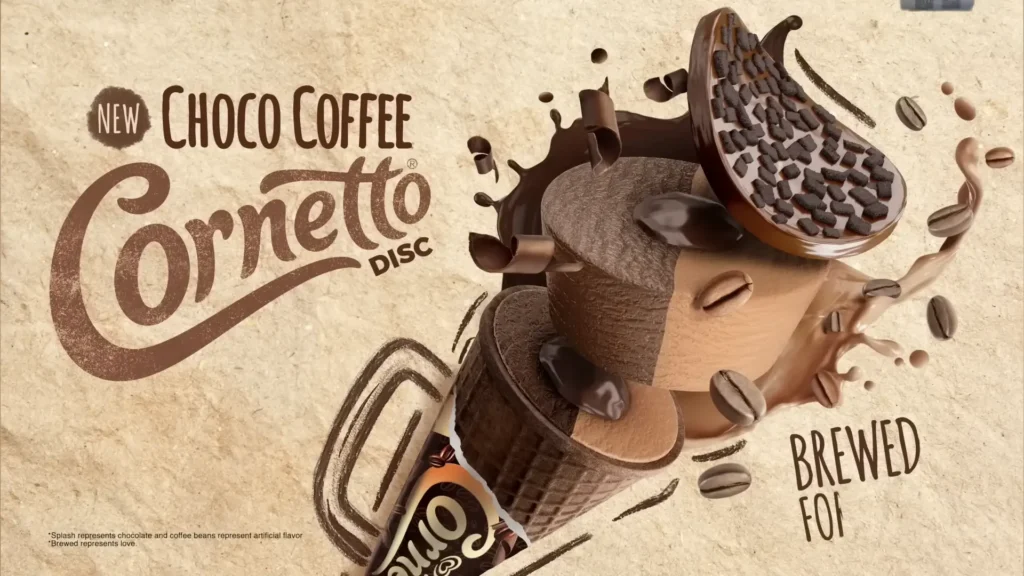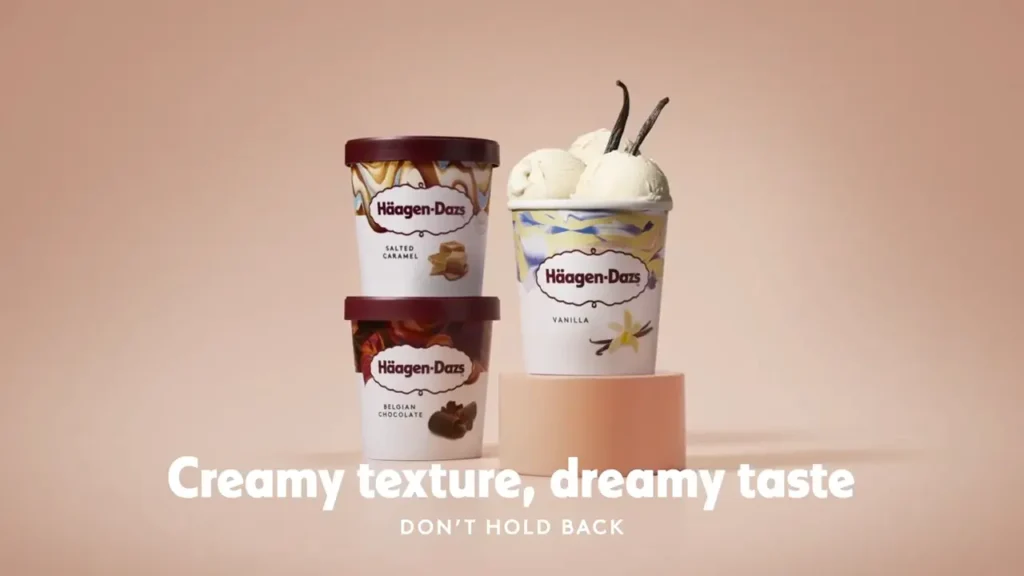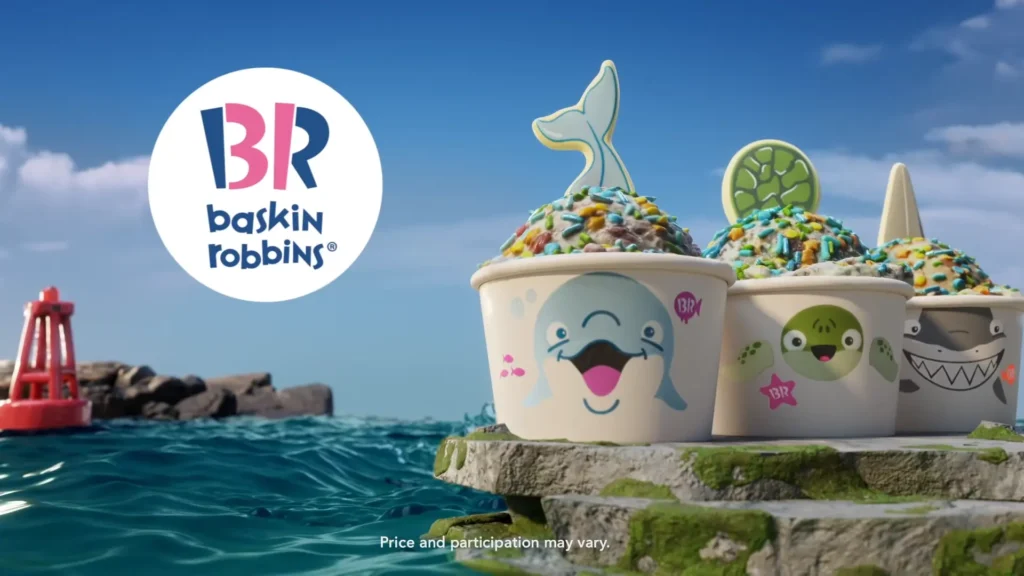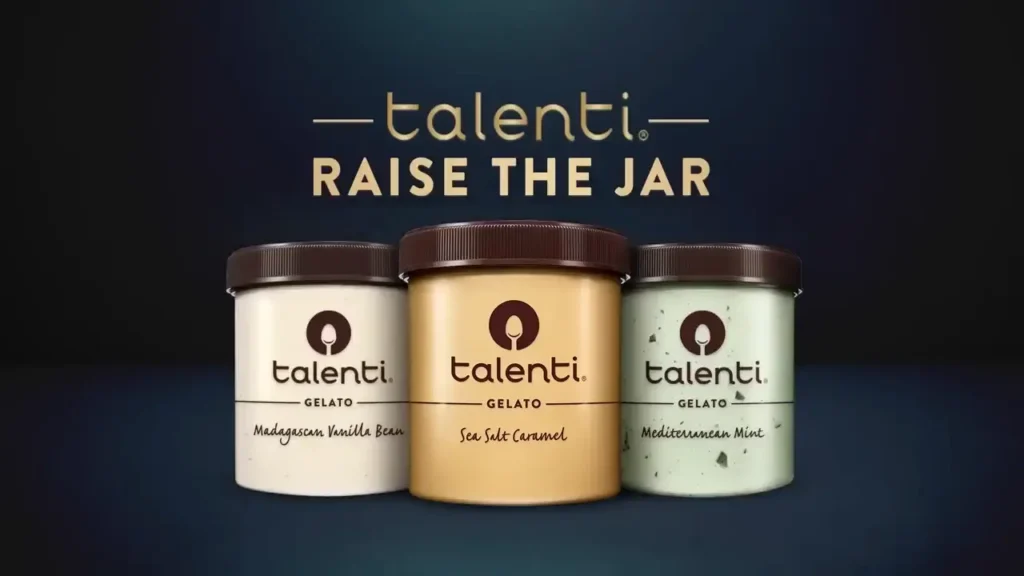Does Coffee Ice Cream Pack a Caffeine Punch?
The Verdict: Yes, Coffee Ice Cream Contains Caffeine.
Coffee ice cream does indeed have caffeine, but the amount can vary based on the recipe. Typically, coffee ice cream has less caffeine than a regular cup of coffee.
The caffeine content depends on factors such as the quantity of coffee and the type of coffee beans used in the recipe. Different brands might have varying caffeine levels, so it’s wise to check the label or contact the manufacturer for precise information.
In summary, while coffee ice cream does contain caffeine, it usually has a lower concentration than coffee. The actual caffeine amount can be influenced by the recipe specifics and the coffee beans used. Always verify with the brand for accurate details.
Coffee ice cream is a beloved treat, blending the sweetness of ice cream with the bold, rich flavor of coffee. For many coffee enthusiasts, it’s the perfect way to satisfy a sweet craving while enjoying a caffeine boost. But does coffee ice cream actually contain caffeine?
In this post, we will delve into the question on everyone’s mind: Does coffee ice cream have caffeine? We will provide comprehensive details on the caffeine content in coffee ice cream, including typical caffeine amounts in a scoop and the potential health impacts of caffeine consumption.
Whether you’re an avid coffee ice cream lover or just curious about this popular flavor, read on to discover more about the caffeine in coffee ice cream.
What is Coffee Ice Cream?
Coffee ice cream is a popular frozen dessert enjoyed by many. It’s crafted by blending cream, sugar, and real coffee or coffee extract, resulting in a rich and bold flavor. This treat is widely available in grocery stores and offered by numerous major brands.
For coffee enthusiasts, coffee ice cream provides a delightful way to savor the taste they love in a cool and refreshing form. Renowned brands such as Ben & Jerry’s and Haagen-Dazs are well-known for their coffee-flavored ice creams.
Does coffee ice cream have caffeine?
Yes, coffee ice cream does contain caffeine. As its name implies, coffee ice cream is made using coffee, which naturally includes caffeine. The caffeine content can vary based on the recipe and the amount of coffee used.
On average, a scoop of coffee ice cream has approximately 30-45 milligrams of caffeine. This is significantly less than a typical cup of coffee, which usually contains 70-140 milligrams of caffeine depending on its size and strength.
History of Coffee Ice Cream
The exact origin of coffee ice cream is not well-documented, but its popularity surged in the United States during the early 20th century. Some historians suggest that the idea of coffee-flavored frozen desserts may have originated in Italy, where espresso-flavored gelato has been enjoyed for centuries.
In the early 1900s, as coffee became a widely popular beverage in the United States, people began experimenting with incorporating coffee into various foods, including ice cream.
One of the earliest known recipes for coffee ice cream appeared in the 1913 cookbook “The Hostess of To-Day,” which described steeping coffee beans in cream to create the ice cream base.

Throughout the 1920s and 1930s, coffee ice cream became increasingly popular, particularly in ice cream parlors and soda fountains, which were popular social gathering spots.
Today, coffee ice cream remains a beloved flavor around the world, with variations ranging from traditional coffee to more adventurous blends like mocha and cappuccino.
What exactly is caffeine?
Caffeine is a natural stimulant present in various plants such as coffee beans, tea leaves, and cocoa beans. It functions as a central nervous system stimulant, enhancing alertness, energy, and focus.
Commonly consumed in beverages like coffee, tea, and soda, caffeine is also found in foods such as chocolate and, importantly, in coffee ice cream.
By increasing the release of certain neurotransmitters, caffeine helps improve mood and cognitive function. This makes it a popular choice for those seeking a quick boost in energy and mental clarity.
Can caffeine be found in coffee ice cream?
Understanding the presence of caffeine in coffee ice cream is essential for several reasons.
First, individuals sensitive to caffeine need to be aware of its content to manage their intake effectively. For these people, knowing how much caffeine is in coffee ice cream helps them make informed dietary choices.
Second, caffeine can cause side effects such as insomnia, nervousness, and an increased heart rate in some people. Being informed about the caffeine content in coffee ice cream allows individuals to avoid these potential issues.
Finally, some people may seek caffeine to enhance their energy levels or focus. Knowing the caffeine content in coffee ice cream helps determine if it can serve as a suitable source for their caffeine needs.
Coffee ice cream can thus be both a delightful treat and a source of caffeine, making it important to understand its content for better dietary decisions.
Also Read: Does Frappuccino Have Caffeine?
How much caffeine is in coffee ice cream?
Coffee ice cream typically contains around 30-45 milligrams of caffeine per scoop. However, this amount can vary based on the recipe and brand.
Different brands may use varying quantities or types of coffee, which can affect the caffeine content. Some manufacturers might even add extra caffeine to enhance the flavor or provide an extra boost.
To know the exact caffeine content, it’s advisable to check the label or contact the manufacturer, especially if you are concerned about your caffeine intake.
The size of the scoop also plays a role. A larger scoop will naturally contain more caffeine than a smaller one, so portion control is important when consuming coffee ice cream or any caffeinated product.
While coffee ice cream does have caffeine, its content is generally lower than that found in a cup of coffee. For those sensitive to caffeine or looking to limit their intake, being aware of the caffeine content in coffee ice cream and managing portion sizes is essential.
Caffeine in Coffee Ice Cream
While some coffee ice creams may be caffeine-free, those made with real coffee can vary in caffeine content based on several factors.
Type of Coffee Used
The type of coffee beans used in the ice cream significantly impacts the caffeine content. Arabica beans generally contain less caffeine than Robusta beans. Although most ice creams don’t specify the type of coffee beans used, the difference in caffeine levels at these small quantities is typically negligible.
Brewing Method
The method used to brew the coffee for the ice cream also affects its caffeine content. For instance, coffee brewed using a French press tends to have higher caffeine levels than coffee made with a drip coffee maker. The brewing method chosen by the ice cream manufacturer can therefore influence the final caffeine amount.
Amount of Coffee in the Recipe
The quantity of coffee used in the ice cream recipe directly affects its caffeine content. A recipe that calls for a substantial amount of coffee will result in a stronger coffee flavor and higher caffeine levels. Conversely, using less coffee will produce milder flavors and lower caffeine content.
By considering these factors, you can better understand the caffeine levels in your coffee ice cream and make informed choices about your intake.
Health Effects of Caffeine
Is caffeine beneficial or harmful? As with many substances, caffeine has both positive and negative health effects.
Positive Effects
- Increased alertness and focus: Caffeine can help improve concentration and mental clarity.
- Improved mood: It can enhance feelings of well-being and uplift your mood.
- Enhanced athletic performance: Caffeine is known to boost endurance and physical performance.
- Reduced risk of certain diseases: Regular caffeine intake has been linked to a lower risk of Parkinson’s disease, Alzheimer’s disease, and liver disease.
- Cognitive benefits: It may improve cognitive function and memory.
Negative Effects
- Sleep disturbances: Caffeine can cause difficulty sleeping or insomnia.
- Jitters and anxiety: High caffeine intake may lead to nervousness and anxiety.
- Increased heart rate: It can elevate heart rate and blood pressure.
- Digestive issues: Some people may experience nausea and stomach upset.
- Headaches and migraines: Excessive caffeine or withdrawal can trigger headaches.
- Withdrawal symptoms: Reducing or stopping caffeine intake abruptly can result in fatigue and irritability.
Also Read: Does Strawberry Acai Have Caffeine?
Ben & Jerry’s BuzzBuzzBuzz: A High-Caffeine Coffee Ice Cream Delight
For fans of coffee ice cream, Ben & Jerry’s BuzzBuzzBuzz stands out as a top choice. This flavor masterfully blends rich chocolate with bold espresso notes, offering a truly satisfying experience for your taste buds. The ice cream itself is wonderfully creamy and has a brown hue, reminiscent of a perfectly brewed cup of espresso.
What makes Ben & Jerry’s BuzzBuzzBuzz unique is its high caffeine content. Each serving contains 70 mg of caffeine, making it one of the most caffeinated options among coffee-flavored ice creams. This makes it an ideal choice for those looking to enjoy a dessert while also getting a caffeine boost.
Haagen-Dazs Coffee Ice Cream

Haagen-Dazs Coffee Ice Cream holds a prominent position in the market for coffee-flavored desserts. This variety is renowned for its exceptional use of Brazilian coffee beans, which impart a rich and authentic coffee aroma and flavor.
The secret to its distinct taste lies in the careful selection and use of high-quality Brazilian coffee beans. This results in a genuine coffee experience that is both satisfying and invigorating.
For coffee lovers, Haagen-Dazs Coffee Ice Cream offers a perfect blend of creamy texture and robust coffee flavor, making it a standout choice in the realm of coffee ice creams.
Baskin-Robbins ‘Jamoca’ Ice Cream

Baskin-Robbins ‘Jamoca Ice Cream stands out due to its unique blend of flavors and lower caffeine content, providing a subtle experience for coffee ice cream lovers. Each serving contains 20 mg of caffeine, making it an ideal choice for those who prefer a milder touch of caffeine in their desserts.
Renowned for its smooth texture, ‘Jamoca’ ice cream offers a harmonious combination of coffee with smoky undertones. This flavor profile pleasantly deviates from the typical bitterness often associated with coffee-based desserts. It is a great choice for those who enjoy a sweeter taste, offering a satisfying yet gentler coffee flavor.
Talenti Cold Brew Sorbetto

Talenti Cold Brew Sorbetto exemplifies coffee-infused desserts with minimal caffeine content. Each serving contains only 0.002 mg of caffeine, making it an excellent choice for those who savor the taste of coffee but prefer to avoid its stimulating effects.
This sorbet features a blend of Colombian cold brew coffee, resulting in a rich and nuanced flavor profile. Talenti has masterfully crafted this dessert to mimic the texture and richness of gelato, enhanced by subtle coffee notes. The delicate hint of coffee elevates the experience without overwhelming the other flavors in the dessert, offering a perfect balance for coffee lovers.
Does Coffee Ice Cream Affect Sleep?
The effect of coffee ice cream on sleep can vary, especially for those sensitive to caffeine. While coffee-flavored ice cream typically contains a small amount of caffeine, it can still impact your ability to fall asleep.
The caffeine content in different brands of ice cream can vary significantly based on the ratio of coffee to cream. Consuming a caffeine-rich ice cream flavor, like espresso, might leave you feeling alert and awake at night.
This sleeplessness is not only due to caffeine; the sugar content in the ice cream also contributes. Sugar can stimulate your brain, causing a rush of thoughts and a restless mind, further affecting your sleep.
Making Your Homemade Decaf Coffee Ice Cream:
Creating your own decaf coffee ice cream at home is a great solution for those mindful of their caffeine intake. This method gives you full control over the caffeine levels, ensuring you enjoy a caffeine-free experience without scrutinizing labels at the store.
If you’re concerned about the caffeine content in store-bought coffee ice creams, making your own at home is an excellent alternative.
By using decaffeinated coffee in your recipe, you can enjoy the delicious flavors of coffee ice cream without any caffeine-related side effects. This DIY approach is not only satisfying but also allows you to customize the flavor to your preferences.
Decaf Coffee Ice Cream: A Homemade Delight Recipe
Preparation Time: Approximately 4 hours
Necessary Equipment:
- Stove
- Non-stick saucepan
- Whisk
- Mixing bowl
- Glass bowl
- Plastic wrap
- Ice cream maker
Ingredients:
- 1 cup of whole milk
- 1 tablespoon of ground decaf coffee
- 2 cups of heavy cream
- 5 egg yolks
- 3/4 cup of sugar
Recipe Steps:
- Brew the Coffee: Start by brewing your ground decaf coffee.
- Warm the Milk: Gently warm the whole milk and mix it with the brewed coffee. Let this mixture sit for a bit.
- Mix Ingredients: Combine the milk-coffee mixture, sugar, and heavy cream in a medium-sized non-stick saucepan. Heat this mixture over medium heat, whisking continuously to ensure a smooth blend. Once it starts to simmer, remove it from the heat.
- Prepare Egg Mixture: In a separate bowl, whisk the egg yolks vigorously. Gradually incorporate the hot milk mixture into the yolks, then return the combined mixture to the saucepan.
- Thicken the Mixture: Over low heat, continue whisking the mixture until it thickens.
- Cool the Mixture: Turn off the heat and transfer the mixture to a glass bowl. Allow it to cool before covering it with plastic wrap.
- Chill the Custard: Refrigerate the custard for at least four hours until it is thoroughly chilled.
- Churn the Ice Cream: Once chilled, pour the custard into your ice cream maker and follow the machine’s instructions.
- Freeze the Ice Cream: Transfer the finished ice cream to a clean glass container and freeze overnight for a firmer texture.
Top 3 Decaf Coffees for Homemade Ice Cream
Choosing the right decaf coffee is essential when making homemade coffee ice cream. The coffee should retain its delightful aroma and recognizable bitterness without the caffeine. Here are three exceptional decaf coffee varieties that will enhance your dessert experience, each offering a unique flavor profile from dark to light roasts.
- Dark Roast Decaf Coffee
- Flavor: Deep, rich, and full-bodied
- Price: $24.60 for 12 ounces
- Features: This dark roast boasts a bold coffee taste, crafted from toxin-free, mountain shade-grown beans. It is USDA-approved and decaffeinated using the Swiss Water process, making it perfect for a recipe that demands a strong, distinct coffee presence.
- Medium Roast Decaf Coffee
- Flavor: Balanced with mild acidity, hints of chocolate and dried fruit
- Price: $24.60 for 12 ounces
- Features: With over 1,326 glowing reviews, this medium roast offers a harmonious blend of aroma and flavor. The hand-selected beans are carefully processed to ensure a smooth, creamy taste, ideal for those who prefer a less intense coffee flavor in their ice cream.
- Light Roast Decaf Coffee
- Flavor: Bright, slightly acidic
- Price: $24.60 for 12 ounces
- Features: Cultivated on small farms in South American rainforests, this light roast is handpicked and spring water washed. It captures the true flavor notes of premium coffee beans, making it an excellent choice for those who enjoy a brighter coffee essence in their desserts.
These decaf coffee options are designed to bring out the best in your homemade ice cream, offering a range of flavors from robust dark roasts to bright and acidic light roasts. Whether you prefer a bold or subtle coffee flavor, these decaf varieties will elevate your ice cream to a gourmet delight.
FAQs: Discover the Caffeine Secret in Coffee Ice Cream [Facts]
Does coffee ice cream have a lot of caffeine?
In general, coffee-flavored ice cream does not contain high levels of caffeine. Typically, it has between 3-5 milligrams of caffeine per serving. For comparison, a cup of coffee usually contains around 95 milligrams of caffeine, and a can of soda has between 35-45 milligrams.
Does coffee ice cream keep you awake?
While a small scoop of coffee ice cream before bed is usually fine for most people, consuming large amounts can affect your ability to fall and stay asleep due to its caffeine content.
Is there any coffee ice cream without caffeine?
Yes, Straus Family Creamery Organic Coffee Ice Cream is made with organic decaffeinated coffee beans, offering a rich, luscious taste without the caffeine.
Do we feel sleepy after eating ice cream?
The high sugar content in ice cream can negatively impact your sleep. It causes a spike in blood sugar levels, which can crash later, leaving you feeling restless during the night.
Are there dietary considerations with these decaf coffees?
Yes, all the recommended decaf coffees are non-GMO, dairy-free, and free from sugars or carbs, making them suitable for various dietary preferences.
What is a simple recipe for homemade decaf coffee ice cream?
A basic recipe includes 1 cup of whole milk, 1 tablespoon of ground decaf coffee, 2 cups of heavy cream, 5 egg yolks, and 3/4 cup of sugar. Brew the coffee, mix it with milk, add sugar and cream, and then incorporate whisked egg yolks. Chill the mixture, churn it in an ice cream maker, and freeze.
How long will coffee ice cream keep me awake?
Caffeine’s effects can last anywhere between 2 and 12 hours after intake. Individual sensitivity to caffeine varies and impacts the duration. To avoid sleep disruption, avoid consuming caffeine at least eight hours before bedtime.
Is there a lot of caffeine in coffee ice cream?
On average, a scoop of coffee ice cream contains around 30-45 milligrams of caffeine. This is significantly less than a typical cup of coffee, which usually contains between 70-140 milligrams of caffeine, depending on the size and strength of the brew.
Does coffee ice cream give you energy?
Coffee ice cream is unlikely to make you “wired” or prevent you from falling asleep. At most, it may give you a slight boost of energy for a short period, but it won’t have the same effect as drinking a cup of coffee. So, enjoying a coffee or ice cream after dinner shouldn’t be a concern.
What to eat instead of ice cream at night?
Sorbet and popsicles made with real fruit juices are great alternatives. Non-dairy ice creams are also an option, but check labels to ensure they are low-fat or low-calorie for a truly healthy swap.
Is there any coffee ice cream without caffeine?
Yes, Straus Family Creamery Organic Coffee Ice Cream is made with organic decaffeinated coffee beans and organic Dutch cocoa, offering a rich, luscious taste without caffeine.